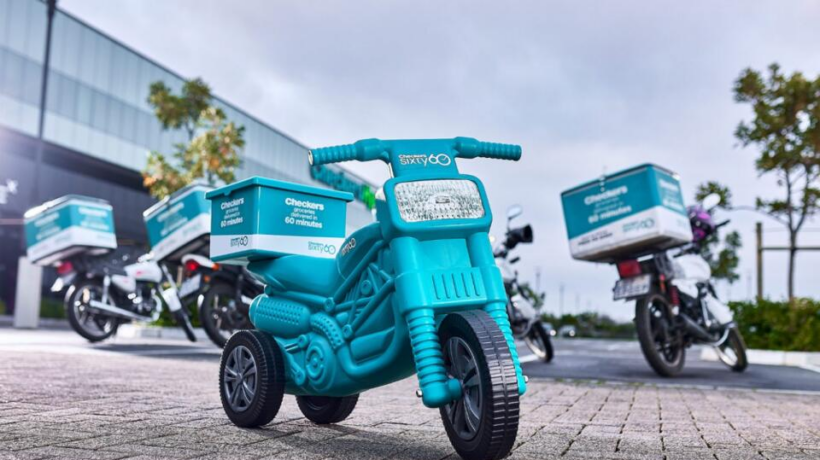There’s no question that the COVID-19 pandemic inspired digital transformation across economic sectors. The retail sector became the poster child of what happens when a traditional industry gets transformed by technology. The Shoprite group in particular has shown us how. Some businesses woke up during the pandemic when they had no choice but to apply digital strategies. When retailers could not welcome customers in their stores Shoprite Group had already built their digital machine.
I recently spent some time with the leadership team behind innovations within the Shoprite Group. I came out of the flagship retail building with the thought that the Shoprite Group has built a retail technology giant to transform itself from a brick and mortar to a tech empowered business. From a consumer perspective it’s not easy to tell the extent to which the business is backed by technology. Consumers can only feel it through the efficient service when they interact with companies within the Shoprite Group.The entire process that ensures timely arrival of goods ordered online is dependent on a tech engine built and acquired by the company. It’s not just the bikes we see on the roads, it’s not just the app but an entire logistics system that enables the delivery of goods. One of the elements is data which is instrumental in enabling the retailer to personalise services and make better pricing and promotions. The data is so important within the Shoprite Group to an extent that recently it established an academy to develop data scientists. The academy offers a year-long programme in which apprentices have the opportunity to extract knowledge and insights from complex data sets involving sales, inventory, consumer spending and much more. Graduates from the academy on completion they join an entity, ShopriteX, within the group which focuses on data and analytics.
What could be referred to as a data startup within the Shoprite Group, is armed with a platform, Rex, which is behind the data analytics processes within the group.
This technology machinery is what makes it possible for consumers to get rewards for their loyalty in retail stores like Checkers. It also enables the delivery within the 60 minutes promise. The technology wave I felt within the Shoprite Group head offices is the same wave that is blowing within the retail sector. Major retailers, Pick n Pay, Woolworths have been busy trying to compete through the use of technology. The extent to which retailers have adopted technology is a game changer in this sector. Small players would have difficulty to compete under such circumstances. These technological changes are repositioning the leading retail giants. Some of them, as seen in the case of the Shoprite Group, are becoming technology companies and incurring the challenges faced by tech giants. The Sixty60 innovation by the Shoprite Group creates the Uber challenge for the retail giant. The delivery app is wholly owned by the Shoprite Group and could introduce challenges (e.g labour) similar to those faced by Uber. To employ or not to employ the delivery drivers? How to create better working conditions for Sixty 60 drivers? As the Shoprite embarks on this digital transformation, may it not adopt all the traits of tech companies. May the retail sector learn good things from tech giants and avoid the bad practices that we’ve seen over the years. The retail sector ought to avoid the manner in which Uber has treated drivers. Shoprite Group and other retailers must also avoid falling into the trap of abusing user data as we’ve seen with tech giants. In the quest to improve customer service there’s a possibility that data shared by consumers may be used to get customers to buy what they don’t need. This should be avoided at all costs.
Correction: This article previously indicated that “the delivery app is not completely owned by the Shoprite Group”.
This has now been corrected to indicate that “Sixty 60 is 100% owned by Shoprite Group”.







